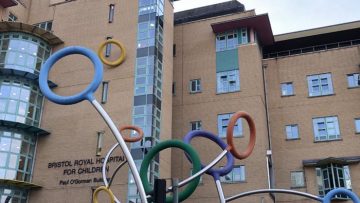The first IMA Employers’ Forum, hosted by EDF Energy, was held on 18 September 2012. The subject of the meeting was Employability of Mathematics Graduates, and the aim of the meeting was to bring together stakeholders, including representatives from industry and academia, to facilitate an exchange of views and the sharing of good practice.
More than 60 people attended, with a roughly even split between representatives from academia and industry. The day started with messages of welcome and introduction from David Youdan FIMA, the IMA Executive Director and David Akers, EDF Energy HR Director for Nuclear Generation.
Recruiting mathematicians for the nuclear renaissance
David Ogle CMath FIMA CSci and Joanne Norman of EDF Energy presented an overview of recruitment of mathematicians to the EDF Energy Science and Engineering Graduate Scheme. They discussed the varied career paths undertaken by mathematicians within EDF Energy. David explained that selection of candidates is not based on the precise mathematical content of the degree course, but on a desire to find technically able, adaptable mathematicians with the ability to pick up new skills and to communicate with non-mathematicians.
David and Joanne described the stages of the graduate recruitment process, with particular emphasis on the success, or otherwise, of mathematics candidates at each stage relative to their peers. Lack of relevant work experience and little experience of the group working environment were viewed as potentially hindering mathematicians at the initial short-listing stage and later at assessment centres. Perhaps more surprisingly, David noted that traditionally approximately two thirds of mathematics candidates fail the technical interview, which requires the application of A-level mathematical techniques in new forms or contexts.
Mathematics in cyberspace
Head of profession for Mathematics, GCHQ described the roles that mathematicians undertake in support of the ‘GCHQ mission’, in the fields of cryptoanalysis and cryptology, and understanding challenging data and challenging systems. He explained that a successful candidate would need to have the required aptitudes, attitudes and competencies.
He challenged the traditional split between pure and applied mathematics, identifying a need for mathematicians who display a ‘pure’ mathematics expertise in combination with an ‘applied’ mathematics attitude of problem solving and contextualisation.
The competencies required of a recruit come from a standard list of civil service competencies. He stressed that a mathematics candidate is required to be adequately good at every competency and able to demonstrate evidence of each at some level. He suggested that mathematicians often do not know how to demonstrate the competencies, not because the evidence does not exist, but because they have not learned the words to present it.
Embedded employability
Robert Leese FIMA Director of the Smith Institute for Industrial Mathematics and System Engineering presented the conclusions of a report entitled Embedded Employability, A guide to enhancing the university curriculum (WIMCS).
The aim of the guide is to support universities in providing STEM graduates with the skills required for employment. Robert noted that the guide considers employability from a student- centric view, but, nevertheless, the conclusions reached fit similar themes to those of the previous presentations. In addition to recognising those employability skills frequently required by graduate employers, the guide identifies skills that it considers to reflect the ‘whole-life’ aspect of student employability, such as international awareness and an entrepreneurial outlook.
Robert stressed the need for employability skills to be developed as an integrated part of a university curriculum, as opposed to being ‘bolted on’ as a separate entity. As an example, he described Mathematical Modelling Weeks, which are being incorporated into undergraduate mathematics courses at the University of Bath. In this case, groups of mathematics students are presented with real industrial problems and required to identify the areas of mathematics that are relevant to develop a solution.
A graduate’s eye view
Delegates were split into three groups to attend breakout sessions with recently employed mathematics graduates. Graduates shared their experiences of recruitment following a mathematics degree, leading to varied discussions within the groups. Attendees took the opportunity to question graduates on their experiences as they progressed from university to graduate employment.
Panel discussion
A panel session was held, the panel consisting of David Percy CMath FIMA CSci of the University of Salford and the three speakers from earlier in the day. Through discussion with the panel, the audience explored themes from the presentations and earlier discussions in greater depth.
Future forum
The forum closed with an invitation to the 2nd IMA Employers’ Forum, on the subject of Sharing Best Practice in Academic Mathematical Technical Outreach, which will be held in March 2013, hosted by AWE.



